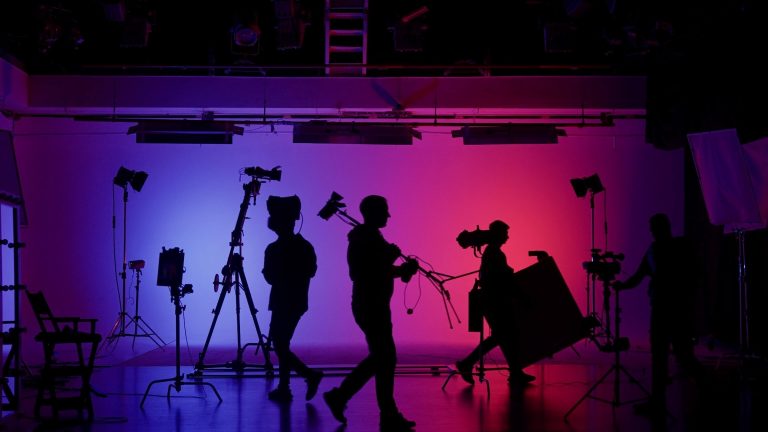
What screenwriting wisdom can be drawn from the words of today's flourishing group of women in Hollywood?
Hollywood can and has learned a lot from women — especially amidst the latest women's movement within the film and television industry. We're seeing more and more female-driven features and television shows being developed, produced, and celebrated.
Here we do some celebrating of our own by featuring quotes from some of today's most powerful, productive, and hard-working cinematic storytellers — accompanied by our own elaboration as to how these wise words apply directly to screenwriting.
"I'm drawn to provocative characters that find themselves in extreme situations. And I think I'm drawn to that consistently." — Kathryn Bigelow (Director of Zero Dark Thirty)
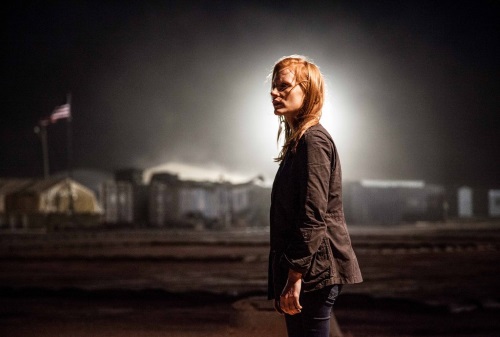
Provocative characters mixed with extreme situations equals fantastic conflict — and in screenwriting, conflict is everything. The more, the better. The bigger, the better.
"The most important thing is to have a point of view and have something to say. That is important if you are a filmmaker or artist." — Kathleen Kennedy (President of Lucasfilm)
You can't just go through the motions as a screenwriter, trying to churn out what you or someone else thinks that Hollywood wants. You have to have a point of view and something unique and original to say, even if you're writing an action movie, horror flick, or hilarious comedy. It has to mean something beyond the potential box office numbers.
I certainly am the first to acknowledge where I don't have strengths, but I think I'm pretty good at acknowledging where I do." — Diane Nelson (President of DC Entertainment)
"I've never had a plan, I've always done things from instinct." — Greta Gerwig (Writer/Director of Lady Bird)

The screenplays that are overly planned and outlined and those that clearly follow a tired formula are those that disappear amidst the dense ocean of scripts in Hollywood. The ones that are written on instinct have a true fire about them. It's evident right there on the page. And as a screenwriter, your best work will come from those moments of authentic instinct.
As screenwriters, it's important to know, realize, and accept what your strengths and weaknesses are. That way you'll know what comes natural and what is going to challenge you most — and sometimes challenging yourself brings out the best stories and characters in you.
"Every villain has their belief system that makes perfect sense to them." — Patty Jenkins (Director of Wonder Woman)
The best villains believe that they are in the right. To create the best adversary for your protagonist, you have to be able to step into that villain's shoes and convince yourself that what the villain is doing makes sense — that they have a point.
Read ScreenCraft's 15 Types of Villains Screenwriters Need to Know!
"Be passionate and move forward with gusto every single hour of every single day until you reach your goal." — Ava DuVernay (Director of Selma and A Wrinkle in Time)
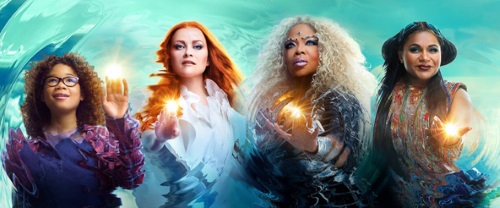
When you've lost your passion, you've lost the ability to drive yourself to get from FADE IN to FADE OUT. And if that passion isn't there, maybe you've chosen the wrong script to write.
"I don't believe in very many things, but art is definitely one of them. And at the top of that list, film and art influence our world's culture much more than many of us understand and fully respect." — Megan Ellison (Producer at Annapurna Pictures)
Screenwriters matter. The influence filmmakers and screenwriters have in today's world is immense — whether your effect is subtle or smacking people right in the face with the best of intentions. You can change the world or change how one individual views it.
"Women can be just as untalented and talented as men... Just because you’re a woman doesn’t give you access to the throne. It’s much harder. It’s a man’s world. There are so few places at the top. There are just so many places where you’re allowed to make things look good. There’s too few vacancies on the climb to throne; it’s more competitive among your peers, who are invariably going to be women. The other ones have already succeeded." — Sheila Nevins (President of HBO Documentary Films)
Whether you're a man or woman, young or old — you are entitled to nothing. You have to do the work. And you have to do it well.
"I make it my business to have felt everything the characters need to feel, so if the actors need me to help them go where they need to go, I have already been there." — Niki Caro (Director of Whale Rider and Disney's live-action Mulan)
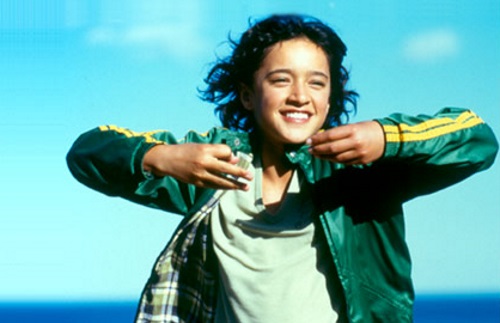
Creating characters is not just about writing scene description and dialogue for them. It's about knowing their heart, their soul, their passions, and their vices. And the magic of knowing that drives the actual story.
"Many people worry so much about managing their careers, but rarely spend half that much energy managing their LIVES. I want to make my life, not just my job, the best it can be. The rest will work itself out." — Reese Witherspoon (Oscar-winning Actress and Producer)
Just write. Just tell your stories. The rest will work itself out. But always remember that if there's no you, there's no you writing — so take care of yourself first and foremost.
"Failure is a great learning tool." — Donna Langley (Chairwoman of Universal Pictures)
You can't become a better writer without constant failure throughout your career. You'll write a character wrong and make a discovery. You'll write a terrible first draft, and discover where it needs to go. You'll send query after query with no response until you find yourself at the right place, at the right time, with the right person. Failure is necessary. Embrace it and learn from it.
"With writing, I need a lot of time to sit around and do nothing. But now that I have kids, I just don't have that luxury. I have a babysitter for three hours a day, which is how long I have to write." — Sofia Coppola (Writer and Director of Lost in Translation and The Beguiled)

You have to find the time to write amidst the crazy schedule of life, whether it's an hour, three, or five every day or week.
"You can't do everything, at the same time, always, and forever. But i f you look at your life and your career as a long, winding river, you can get to your destination." — Stacey Snider (Chair and CEO of 20th Century Fox Film)
Don't sweat what is right in front of your face. Look ahead and know that despite the trials and tribulations, you're headed down the right path — your path.
"When doing family entertainment, you don't actually worry about kids. You know what you can't do. But in terms of sensibility and sophistication and wit and ambition, aim for your own taste level, and kids will — if they're interested in the subject matter — be glad that you did." — Nina Jacobson (Producer of The Hunger Games and American Crime Story: The People v. O.J. Simpson)

If you're writing family screenplays, which is a hot genre at the box office, don't dumb things down for the kids. Elevate the characters and story to your own level.
"Audiences want to be swamped with visions they couldn’t come up with themselves." — Sophie Watts (President of STX Entertainment)
Be original. The pundits and blowhards will try to make you believe that audiences want more of the same, but nothing could be further from the truth. At the very least, give them a new version of what they've proven to love — something that shakes them to the core.
"I can’t emphasize enough the importance of having someone in your corner who you trust... there are a lot of people who want to be your friend when things are good. It’s about seeing who’s still around and who wants to be your friend when, God forbid, you fall on your face and have to get back up... Find your tribe." — Adele Romanski (Producer of Moonlight and Under the Silver Lake)
Hollywood is full of leaches. Sure, it may be great to get offers from fast-talking managers and agents. But if your gut is telling you that they aren't trustworthy, you need to search for better options. You need to find people that love your work and genuinely want to help you make your dream come true.
"I've always been someone who feels better if I see what I'm going through in a movie." — Lena Dunham (Creator of HBO's Girls)
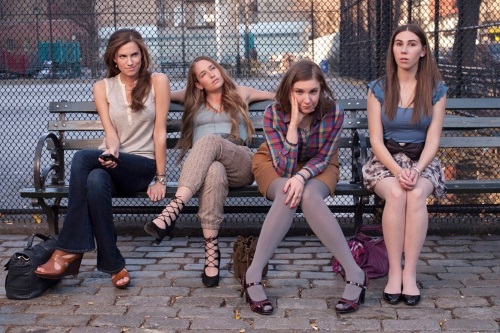
Your screenplays need to be cathartic — that's the one secret to a successful screenplay. Playing with universal themes and emotions that audience members can relate to is vital to a script's success.
"I think the biggest lesson that I've learned from everybody that I've worked with, and the great ones do it seamlessly, is that you are always in service of the film. You are always in service of the director's vision, which in my case has always been Steven. Every decision you make, every problem you solve is with that in mind." — Kristie Macosko Krieger (Steven Spielberg's Producing Partner at Amblin Partners)
Don't try to jump on a trend bandwagon. Don't try to appeal to specific demographics. Just do whatever you can to focus on telling the best story possible.
"Why tell a story that people have seen 900 times? That's not interesting artistically." — Dede Gardner (Producer of World War Z and Moonlight)
It's absurd to think that audiences — or Hollywood — want the same story told in the same false formula or beat sheet. Be original.
"I grew up in the Midwest; you don't know any screenwriters. It didn't seem like a realistic career possibility." — Diablo Cody (Writer of Juno and Tully)
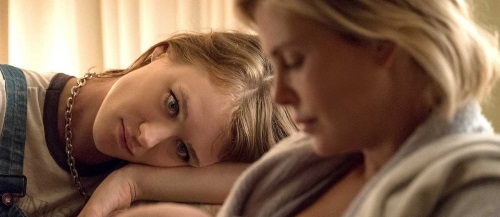
Anything can happen to anyone from anywhere.
Read ScreenCraft's The Single Most Important Element of a Successful Screenplay!
"If you want to be a screenwriter, take an acting class to get a sense of what you're asking actors to do. Learning other skills will help you communicate with people and respect what they do." — Tina Fey (Creator of Unbreakable Kimmy Schmidt and 30 Rock)
Do all that you can to think out-of-the-box when it comes to understanding your story and characters.
"There are stories to be told that are still untold and characters to be portrayed that haven't been portrayed correctly. So there's work to be done." — Shonda Rhimes (Creator of Grey's Anatomy and Scandal)

Those untold stories and characters that have yet to be portrayed are out there. You just have to find them. And when you do, there's no better thrill than creating something that hasn't been done before.
Ken Miyamoto has worked in the film industry for nearly two decades, most notably as a studio liaison for Sony Studios and then as a script reader and story analyst for Sony Pictures.
He has many studio meetings under his belt as a produced screenwriter, meeting with the likes of Sony, Dreamworks, Universal, Disney, Warner Brothers, as well as many production and management companies. He has had a previous development deal with Lionsgate, as well as multiple writing assignments, including the produced miniseries Blackout, starring Anne Heche, Sean Patrick Flanery, Billy Zane, James Brolin, Haylie Duff, Brian Bloom, Eric La Salle, and Bruce Boxleitner. Follow Ken on Twitter @KenMovies
For all the latest ScreenCraft news and updates, follow us on Twitter, Facebook, and Instagram.
Tags
Get Our Screenwriting Newsletter!
Get weekly writing inspiration delivered to your inbox - including industry news, popular articles, and more!



















